Ten years ago, when the first “Discover Mongolia” Forum was conceived of as a platform to introduce the Mongolian mineral sector to the world and to attract foreign investors, nobody could be certain of the response from the latter. Now, when the annual event is a runaway success, we take a walk back Memory Lane with N.Algaa, chief executive of the Mongolian National Mining Association, who was among those actively behind the forum at its modest beginning in 2003.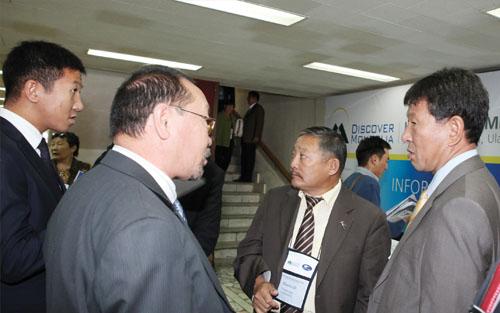
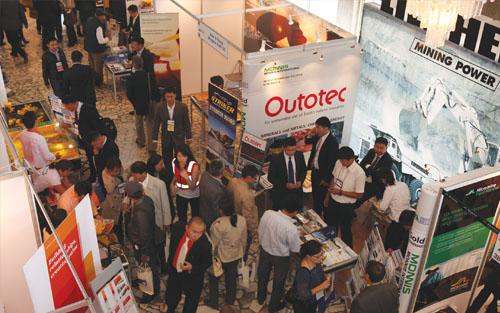 Let us begin at the very beginning. What are your memories from the first Discover Mongolia Forum?
Let us begin at the very beginning. What are your memories from the first Discover Mongolia Forum? I shall go a little more into the past. The second international investors’ forum was held in Mongolia in 2002. This was at the current Ulaanbaatar Palace. With only 2-3 members back then, the Mongolian National Mining Association (MNMA)put up a small exhibition. That was our first attempt to showcase Mongolia. In March, 2003 some companies such as Monrud and Mine Info attended an international mining exhibition in Toronto, Canada and when they returned they spoke to the MNMA about organising a similar event in Mongolia. We accepted the idea and prepared 250 seats on the 3rd floor of Chinggis Hotel.
Registration was to be on the morning of the event, and we didn’t know how many would attend.I remember I couldn’t sleep the night before, worrying that nobody will come. When the event began, all 250 seats in the room were occupied.
From the beginning we wanted only people with serious interest to come, whether investors, project implementers or researchers, and to keep the idle curious away, we charged a participation fee. Besides giving information on the Mongolian mineral sector to outsiders, we also wanted to create an opportunity for Mongolians in the sector to directly interact with one another and freely discuss their experiences and difficulties. It helped that commodities prices were just starting to rise and that OyuTolgoi had just been opened. Both helped draw the attention of foreign and national companies to the forum.
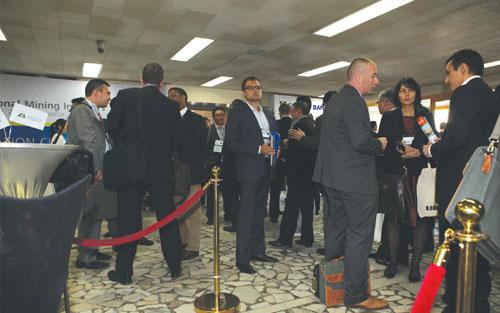
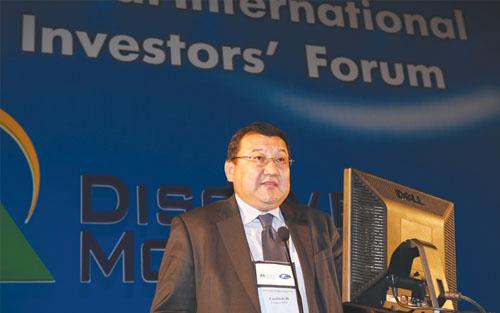 How did you hit upon the name Discover Mongolia?
How did you hit upon the name Discover Mongolia?This came after some discussion. Discover can mean “to find”, and “to learn of”, or “to observe”, and this pretty much covered all areas of our effort to give participants a chance to know about Mongolia’s geology and mining.
What was the motto of the first conference? There is a famous Latin sentence attributed to Julius Caesar, “Veni, vidi, vici”, which means “I came, I saw, I conquered”. We adapted it to “Veni, vidi, invest”, meaning “I came, I saw, and I invested”. That was our motto for 3-4 years.
Ten years ago, the world was not very familiar with Mongolian mining. What were the main difficulties for you in organizing the event and persuading investors to attend?As I recall, we set a participation fee of $450 for foreigners and $100 for Mongolians. This was at a time when attending conferences was free here, and there was no concept of paying to get information. Our main worry was about how Mongolians would accept this new condition. Generating interest among foreigners was made easier by the fact that in 2001, Ivanhoe Mines had announced its work on OyuTolgoi and raised $65 million for the project. This had already drawn the world’s interest to Mongolia. This was of help when we started.
What sort of handout material did you prepare for the forum attendees?Usually, participants at this kind of forums receive a bag with a pen, and some written material with sponsors’ ads. We decided to get everything made locally, not importing them from China or Korea, so that local small and medium businesses were helped. I remember we ordered 250 felt bags from a small factory that employed women heading households. We invited some people from that factory to the organisers’ post-forum reception. They said ours was the first major order for their factory.
Foreign participants were very appreciative of the bags, but the felt was not very functional, so the following year, we used suede. This turned out to be an even worse choice than the felt. Then we saw canvas bags being distributed at an ecological conference, and were interested. Geologists were used to canvas bags of good quality and it fit with the theme of our forum. So we began using canvas bags, and still do.
As for the awards, we wanted to promote our traditional arts, and tried engraving Chinggis Khaan’s image on the award and even tried making an image of a shield. These memories might appear insignificant today, but they are stuck in my mind when I think of the many steps we have taken before bringing the forum to today’s level.
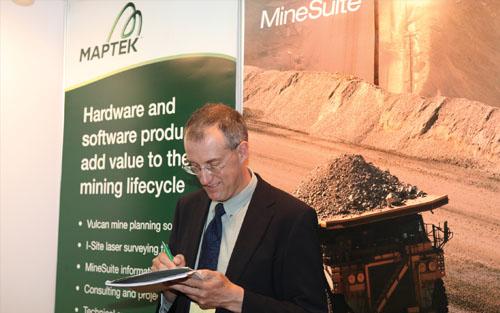
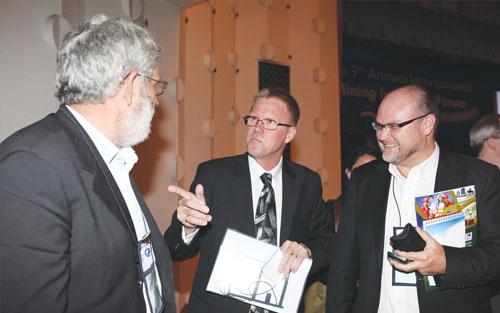 In recent years, the “Government Hour” has been of great interest in the forum. How did the state leadership respond when you first planned the event? Were they enthusiastic about it?
In recent years, the “Government Hour” has been of great interest in the forum. How did the state leadership respond when you first planned the event? Were they enthusiastic about it? MNMA has close professional ties with both the Minerals Authority and the Ministry of Mineral Resources and Energy, and the Ministry is the official supporter of the forum. N.Enkhbayar, Prime Minister at the time, attended the opening ceremony of the first forum. The forum does not require any funding from the Government but gives it an opportunity to present state policy to investors. So decision makers were ready to discuss policy matters at the forum.
Incidentally, two international investors’ conferences were held in 1997 and in 2002, with financial assistance from the World Bank and the Government of Mongolia.
Despite participants’ interest, some say that policy makers have begun to give a miss to “Government Hour”. Is this a valid complaint? Government policy has remained more or less unchanged for four years, and there has thus been less to discuss.We see “Government Hour” as giving an opportunity to discuss new developments, and not to reiterate points already made in an earlier session. The other thing is that “Government Hour” is meant to provide information and discuss difficulties faced, but not to resolve specific problems. Investors’ questions on policies can be explained by policy experts, and as long as they are at hand, the presence of the Prime Minister himself or the Minister is not required.
What was the focus of the speeches and discussions in the first years? The opening day was usually given to sponsors advertising their operations and businesses. The second day, we used to detail possible exploration projects aimed at attracting investors. This has now lost importance and we now have more regional and international level discussions and also ones that focus on mineral policy. Another way of describing the successive shifts in priority would be to say that initially, we wanted investments in exploration, then in projects and today we focus on investments in supplies. Social responsibility and transparency initiatives are now the buzz words.
The Organising Committee has been reconstituted only four times in the past 10 years. After every forum, the Committee members review the achievements and failures of the forum and discuss ideas and suggestions for the next forum. We are trying to induct the next generation into organising and managing the event. The success of Discover Mongolia has “given birth” to many other similar forums, but we have to wait and see how effective they are.
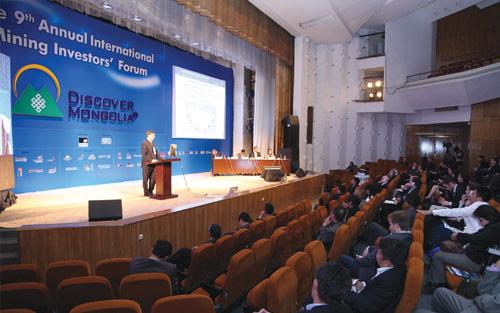
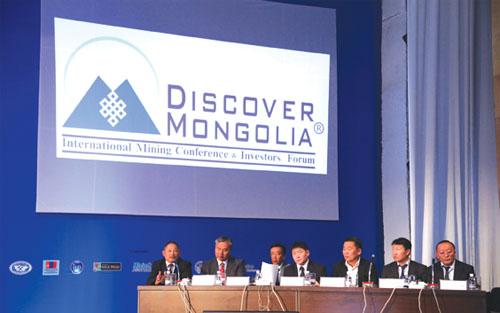
The main purpose of Discover Mongolia is to attract investment. The recently passed law regulating foreign investment in projects of strategic importance has led to uncertainty among investors. Will their concern be discussed at this year’s forum?Three speakers are scheduled for a session called “Reforms in the Legal Environment”, and I suppose they will open up the issue. We look forward to an open and widespread discussion on how the new law will affect future investments.
Besides, there is to be a session where the agenda will be investments in processing plants and in the energy sector. We have named it “Base structure”, and not “Infrastructure”, because we feel developing the basic structure will pave the way for growth in the latter. Energy supply, roads and railways, transportation and customs capacity are all issues we expect to be discussed.
Did you imagine back then that Discover Mongolia would cover such a wide range of issues and become an event of international significance after ten years?My initial feeling was that Mongolia badly needed this kind of event and that the private sector should take responsibility without waiting for the State to do something. It was immediately clear that we were right. The first years were hard. Certain things were not readily available then. I remember that we checked close to 100 construction material stores to find the right person to make the frames for the exhibition boards. We stayed up late to do other small things. After 3-4 years, when the Chamber of Commerce and Industry had bought exhibition boards, we borrowed theirs. Two years ago, Prime Info, one of our organising companies, donated about 90 boards for use at the forum. We faced a lot of problems, but we were never discouraged. We realised early that money was very important when organising an event like this, and finally two companies,MonRud and Prime Info, gave us $5000 each for the first forum in 2003.
What will be the distinctive character of the coming conference, and what new features will we see? This year, our motto has been changed to “From Discovering to Developing”, as we want to shift the focus to identifying the proper ways to spend the profits from mining. We also have an event where three generations of workers in the mineral sector will come together. There will be no other major changes. As always, we shall conduct a mineral sector introduction course before the actual event.
You have spent a lifetime in mining and how do you see the future of this sector in Mongolia? What would be the end result of its intensive growth? Are we wisely using our resources?
I have worked in this sector for more than 30 years, and have a positive view of the future of the Mongolian mining industry. OyuTolgoi and TavanTolgoi are very projects, and the income from them will be huge. The most important thing is to distribute this income fairly among all the people. It is not about the monthly MNT 21,000. We need to distribute it so that our health, education and infrastructure sectors are world class.







